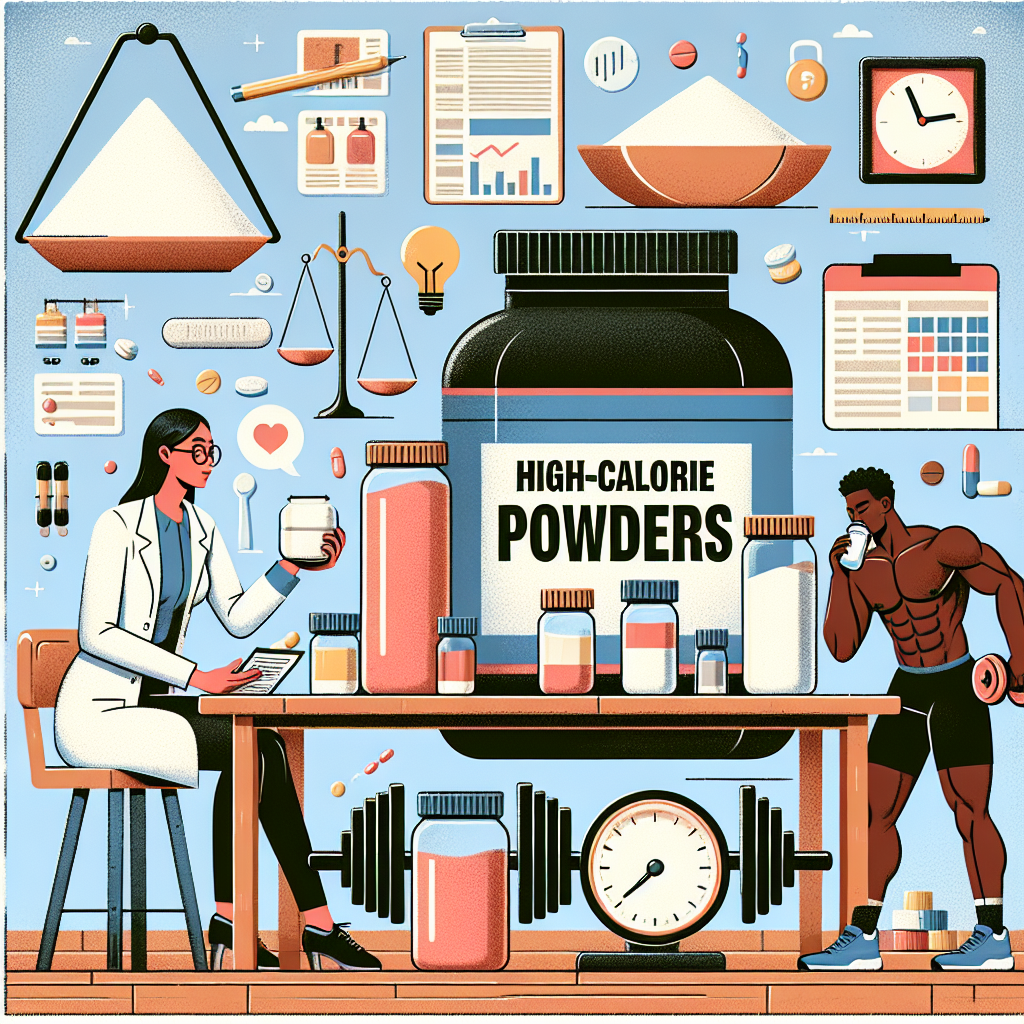Many people need targeted strategies to add calories safely—whether recovering from illness, managing a high metabolic demand, or trying to gain weight for athletic or medical reasons. A calorie powder can be a convenient, concentrated way to boost intake without forcing large-volume meals. This article walks through safe ways to use high-calorie powders and supplements so you get extra energy without sacrificing nutrition, digestion, or long-term health.
High-calorie powders: what they are and when to consider them
High-calorie powders are powdered mixes formulated to add energy quickly—often as part of shakes, smoothies, or added to foods. They range from simple carbohydrate mixes to balanced formulations that include protein, fats, vitamins, and minerals. Consider them when you struggle to meet caloric needs through food alone, face appetite loss, or have increased needs after surgery, illness, or intense training.
Types of calorie and nutrient boosters
There are several product categories to consider. Choosing among them depends on your goals—weight gain, muscle building, or recovering lost body stores—and any health conditions like diabetes or kidney disease.
- Calorie supplements: Often carbohydrate- or fat-based powders that add energy without large food volume.
- High calorie dietary supplements: These are marketed for medical nutrition and can provide a balanced mix of protein, fat, and carbs plus micronutrients.
- High calorie nutritional supplements: More comprehensive formulas designed to replace or augment meals when appetite is poor.
- High calorie supplements for athletes: Focus on protein and carbohydrate blends to support recovery and muscle growth.
Balancing macros and micronutrients
Not all calories are equal. If you rely on powdered sources frequently, pick options with an appropriate balance of protein, carbohydrate, and healthy fats, and with added vitamins and minerals if they will act as meal replacements. Read labels to see protein content, vitamin fortification, and the presence of fiber. For guidance on protein needs and how protein contributes to overall nutrition, see the Office of Dietary Supplements’ protein fact sheet for health professionals: Office of Dietary Supplements — Protein overview.
How to choose and use high calorie supplements safely
Start with these practical steps to get the benefits while minimizing risks.
- Consult a clinician or registered dietitian to set calorie and macronutrient targets tailored to your condition and activity level.
- Prefer formulas that include some protein and micronutrients if they will replace meals, rather than empty-calorie carbohydrate powders alone.
- Consider the highest calorie protein powder only if your goal is rapid weight gain and you can tolerate concentrated protein; otherwise choose moderate-protein mixes combined with healthy fats.
- Introduce supplements gradually to monitor digestion and blood sugar—this is especially important for people with diabetes or insulin resistance.
- Use variety: rotate between liquid supplements, fortified smoothies, and energy-dense whole foods to avoid micronutrient gaps.
Special populations and cautions
People with diabetes, kidney disease, or heart conditions should be especially careful about concentrated nutrition products. Those with diabetes should avoid high-sugar, low-fiber powders and work with their care team to maintain glycemic control. If you are following a structured therapeutic program such as medically supervised meal replacement or a restricted energy plan, discuss how supplements fit with that approach—some programs emphasize soup and shake regimens as a controlled way to reduce or reverse metabolic issues; for an example of a meal-replacement approach focused on diabetes reversal, see this overview of an NHS soup and shake diet:
NHS soup and shake diet: a new approach to reversing type 2 diabetes
Practical ideas for adding calories without feeling overfull
Small, frequent strategies can boost intake without large meals:
- Add powdered boosters to milk, smoothies, or yogurt to increase density.
- Mix calorie supplements into oatmeal, mashed potatoes, or soups.
- Use nut butters, olive oil, or avocado as easy ways to increase calories from healthy fats.
- Snack on calorie-dense, nutrient-rich options like trail mix, cheese, or full-fat dairy between meals.
Monitoring progress and safety
Keep a simple food log and weigh yourself weekly to track gains. Watch for digestive upset, changes in blood glucose, or unwanted fat gain. If you’re using high calorie dietary supplements long-term, periodic blood work may be recommended to monitor kidney and liver function and to ensure micronutrient status is adequate.
Quick takeaways
- Choose balanced high calorie supplements over empty-calorie options whenever possible.
- Work with a healthcare professional to match supplement choice to medical needs.
- Combine powdered solutions with whole-food approaches for sustained health benefits.
Frequently asked questions
Q: Are calorie powders safe for everyone?
A: Most healthy adults can use calorie powder products safely, but people with diabetes, kidney disease, or certain metabolic conditions should consult their clinician before starting because ingredient composition and concentration can affect blood sugar and organ function.
Q: How do I pick between calorie supplements and food-based calories?
A: Use food-first approaches where possible; choose calorie supplements when food alone isn’t meeting needs. Look for products that include protein and micronutrients if they’ll substitute for meals, and avoid high-sugar formulas if you have glucose concerns.
Q: Can I combine the highest calorie protein powder with other supplements?
A: You can, but monitor total protein, calorie load, and tolerance. A dietitian can help you design combinations that support goals without exceeding safe limits.






